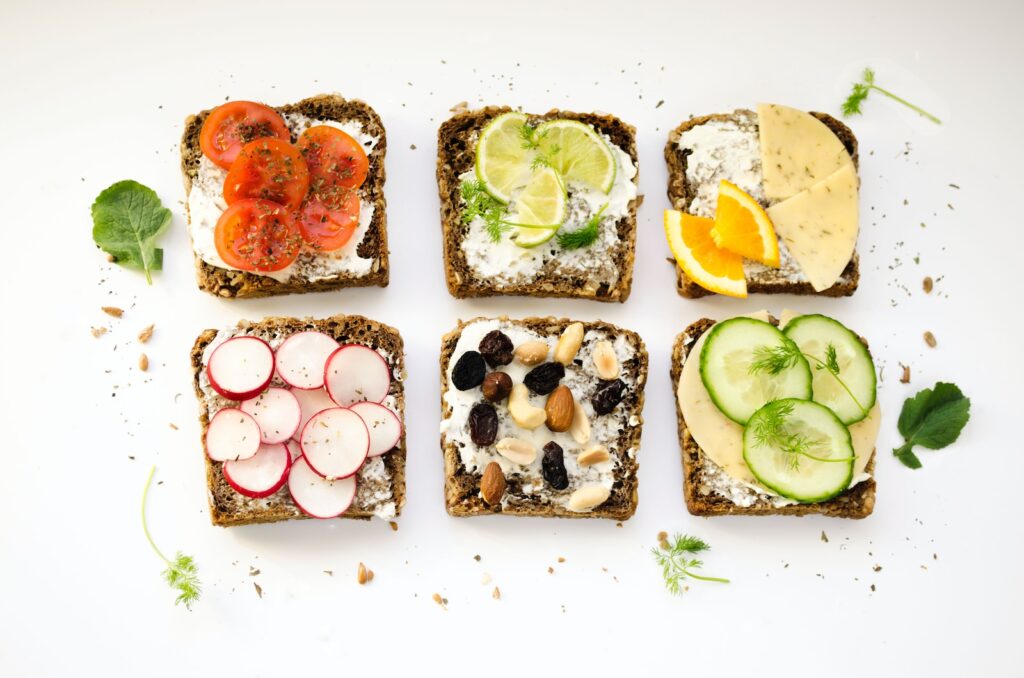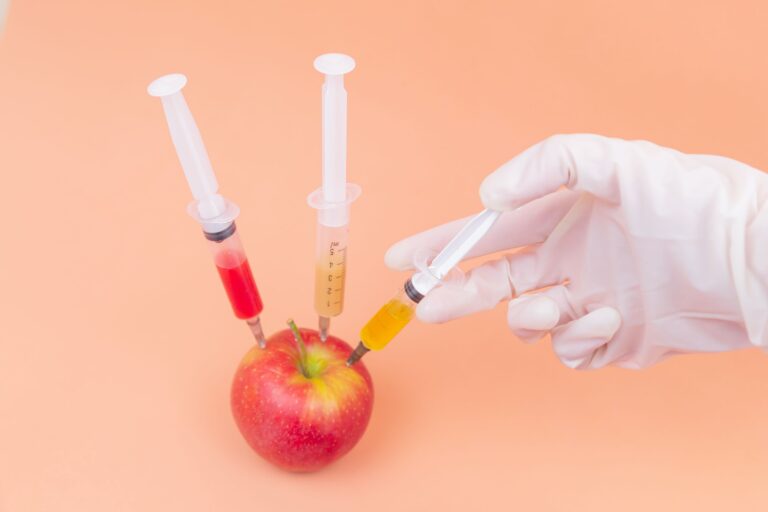The Connection Between Nutrition and Mental Health
Mental health is an essential component of a person’s overall well-being, and it can be influenced by various factors. One such factor that has gained significant attention in recent years is nutrition. What we eat could play a crucial role in how our brain functions and affects our mood, emotions, and behavior. It’s fascinating to see the intricate relationship between what goes into our bodies and how it impacts our mental state.
In this blog post, we will delve deeper into the connection between nutrition and mental health to understand why eating nutrient-rich foods could help us maintain better emotional regulation, cognitive function, and overall mental wellness. So grab your favorite snack (preferably healthy!), sit back, relax, and let’s explore this fascinating topic together!
Introduction
There’s a growing body of research linking good mental health with good nutrition. A 2013 study found that people who reported feeling depressed in the past year were more likely to have lower intakes of fiber, magnesium, vitamin B12 and zinc. In another study published in JAMA Psychiatry, researchers found that people who had a poor diet or no diet at all were twice as likely to report an antidepressant use in the past year compared to those who had a healthy diet.
It’s not just depression that has been linked to nutritional deficiencies. Studies have shown that poor mental health can be caused by a number of different factors including genetic dispositions and environmental stressors like poverty or living in a crime-ridden area. Poor nutrition can worsen these conditions and make it harder for someone to cope with their mental health challenges.
There are a number of ways that good nutrition can benefit mental health. For example, eating foods that are high in antioxidants can help protect against brain damage and other chronic disorders. Foods like fruits and vegetables also contain vital nutrients like vitamins, minerals and proteins which are critical for mental wellbeing. Additionally, getting enough physical activity can improve mood symptoms by releasing endorphins—neurotransmitters that act as natural antidepressants.
It’s important to note that not everyone with poor mental health will struggle with nutritional deficiencies. In fact, there is evidence to suggest that some people with better mental health actually have higher intakes of certain nutrients than those with poorer mental health. However, having a well-planned and balanced diet that includes plenty of fruits, vegetables and whole grains is likely to be the best way to improve your mental health and nutritional status.
What is Nutrition?

Nutrition is the name given to the body’s food and drink intake. Nutrition can affect mental health in a number of ways.
One way nutrition can affect mental health is by providing the body with the nutrients it needs to function effectively. Nutrients like essential amino acids, vitamins and minerals are essential for the growth, development and function of the brain and other organs. When these nutrients are not available in an adequate quantity, their role in mental health can be impacted.
Another way nutrition can affect mental health is by ensuring that diets are balanced and include all the important nutrient groups. A balanced diet will provide all of the required vitamins, minerals and amino acids, which supports mental health on several levels.
- Research shows that people who have a balanced diet have lower rates of anxiety and depression than those who do not have a balanced diet.
- In addition to ensuring that diets are properly balanced, it is also important to consume enough water each day. Dehydration can lead to feelings of anxiety and depression.
- Proper hydration helps to regulate moods through several means including regulating blood sugar levels, reducing stress hormones and supporting cognitive performance.
So nutrition has a wide-ranging impact on mental health – from supporting overall organ function to improving Mental Health Diet balance and daily water intake.
The Role of Nutrition in Mental Health
There is a growing body of research indicating that a good diet can play a significant role in mental health. A recent study published in Nutrition Journal found that eating plant-based foods lowers the risk of developing anxiety, depression and other psychiatric conditions. These foods are believed to contain nutrients, like antioxidants and omega-3 fatty acids, that have antidepressant effects. Other studies have shown that diets high in fruits, vegetables, whole grains and low in unhealthy fats are associated with lower rates of anxiety and depression.
While it’s not clear exactly how nutrition affects mental health, it likely has several key mechanisms at work. Good dietary habits may protect against chronic stress hormones like cortisol and insulin resistance, both of which are linked to psychiatric conditions. Furthermore, a healthy diet may increase production of serotonin, dopamine and other neurotransmitters responsible for mood regulation. In sum, a nutritious diet appears to be an important component of overall mental health wellness.
What are the Causes of Mental Health Problems?
Mental health problems can be caused by a variety of factors. Some mental health problems are caused by genetics and may not be reversible. Other mental health problems may be the result of an environment or situation that a person experiences.
There are many things that can contribute to mental health problems, such as stress, trauma, poor nutrition, lack of exercise, and smoking. Mental health problems can start slowly and develop over time. They can also be sudden and unexpected.
The Connection Between Nutrition and Mental Health
There is a growing body of research linking poor nutrition with mental illness. Certain foods have been found to increase the risk of developing common psychiatric disorders, such as anxiety, depression, bipolar disorder, eating disorders, schizophrenia, and ADHD. These foods contain ingredients that can upset the natural balance in the brain and lead to chronic inflammation. Nutritional deficiencies also interfere with brain function at every stage from prenatal development to old age.
Our brains are biologically engineered to run optimally on a balanced diet that includes plenty of healthy fats, complex carbs, and protein. Malnutrition impairs our cognition both during development and in later life by damaging key cells in the brain responsible for learning and memory formation; it increases risk for conditions like Alzheimer’s disease; it enhances stress responses; and it depletes vitamins essential for nerve growth and regeneration (especially B-12).
How can Nutrition Improve Mental Health?
Mental health is an umbrella term which refers to the well-being of an individual’s mind, emotions and behavior. It can be affected by a variety of factors, including genetics, life experience, stress and surroundings. Poor nutrition can lead to poor mental health, as can a lack of exercise, insufficient sleep and untreated mental illness.
There are a number of ways that nutrition can improve mental health. Nutritional deficiencies can cause mood disorders such as anxiety and depression. Good nutrition has been shown to protect against neurodegenerative diseases such as dementia and Alzheimer’s, boost cognitive function in adults and adolescents, promote positive Mood States (such as Contentment), Improve resilience to stress and supports social functioning.
There are several things you can do to support your mental health through good nutrition:
Eat a balanced diet rich in fruits, vegetables, whole grains and low-fat proteins. Avoid saturated fats , trans fats , processed foods and junk foods .
These nutrients can increase inflammation in the body which is linked to poor mental health outcomes.
Drink plenty of water on a daily basis – not only is it necessary for proper hydration but it also helps keep the brain functioning optimally.
Not drinking enough water has been linked with anxiety and depression symptoms.
Conclusion
According to the World Health Organization, diet is one of the biggest contributors to mental health disorders. Poor dietary choices can lead to: anxiety, depression, ADHD, and bipolar disorder. In fact, research has shown that those who have a poor relationship with food often struggle with mental illness as well. Fortunately, there are many simple steps you can take to improve your nutrition and mental health simultaneously. Here are a few tips:
1) Eat a balanced and varied diet rich in fruits and vegetables. These foods provide vitamins and minerals essential for good mental health as well as emotional stability.
2) Make sure you intake enough vitamins B12 and D – both of which play important roles in mood regulation.
3) Avoid processed foods which are high in sugar and unhealthy fats. Instead opt for whole grains, lean proteins, healthy fats, etc., all of which will help keep your blood sugar under control and promote stable moods.







6 Comments